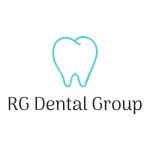How to Handle Teeth Grinding During Sleep: Causes and Solutions
- Understanding Teeth Grinding During Sleep (Bruxism)
- Common Causes of Teeth Grinding
- Effective Solutions for Teeth Grinding
- How to Prevent Teeth Grinding
- Real-Life Experience of Teeth Grinding and Solutions







 RG Dental Group4.0 (91 review)
RG Dental Group4.0 (91 review) Eric Hansen, LD0.0 (0 review)
Eric Hansen, LD0.0 (0 review) Facer Hales Parker Dentistry4.0 (601 review)
Facer Hales Parker Dentistry4.0 (601 review) The Implant Center at Comprehensive Dental4.0 (421 review)
The Implant Center at Comprehensive Dental4.0 (421 review) Dentistry at 1818 Market Street4.0 (686 review)
Dentistry at 1818 Market Street4.0 (686 review) Prosthodontic & Implant Associates5.0 (2 review)
Prosthodontic & Implant Associates5.0 (2 review) The Importance of Oral Health Education During Pregnancy for a Healthy Pregnancy
The Importance of Oral Health Education During Pregnancy for a Healthy Pregnancy Best Tips for Brushing Your Teeth Properly for Healthy Gums: Essential Techniques for Oral Health
Best Tips for Brushing Your Teeth Properly for Healthy Gums: Essential Techniques for Oral Health Why Skipping Dental Checkups Can Lead to Bigger Oral Health Problems
Why Skipping Dental Checkups Can Lead to Bigger Oral Health Problems Advantages of Porcelain Dental Restorations
Advantages of Porcelain Dental Restorations How Can Diabetes Cause Tooth and Gum Problems? Preventing and Managing Oral Health Issues
How Can Diabetes Cause Tooth and Gum Problems? Preventing and Managing Oral Health Issues Healthy Habits for Promoting Good Oral Health and Hygiene: Tips for a Healthy Smile
Healthy Habits for Promoting Good Oral Health and Hygiene: Tips for a Healthy Smile